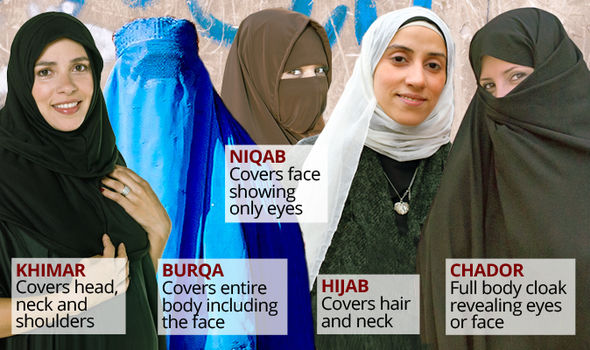Once upon a time, blasphemy was prosecuted by the Crown as an attack on the very basis of English law: “[blasphemy] law is needed to uphold the national law, which is based on Christianity. Thus, targeting Christianity is targeting the very foundation of England.” The last successful prosecution was in 1977. Modern prosecutions for blasphemy do not get filed under the old law, but the mechanism of the police, the courts, and the media are directed against those who dare to insult one particular faith:
Religious freedom is one of the core principles of any modern liberal society. As a secularist, I defend the right of religious people to send their children to faith schools, have their children circumcised, or wear the burqa. This does not mean I approve of any of these practices; they should be permissible but not protected from criticism. We should be free to ridicule, lampoon, chastise, critique, etc. every aspect of religious belief that we tolerate.
This is, more or less, what the U.K.’s former Conservative Foreign Secretary Boris Johnson wrote in his now infamous newspaper column in the Telegraph last week. Yet all hell has broken loose. It was greeted by near-hysterical outrage and shrill denunciations of Johnson’s alleged dog whistle racism; reports of civil war in the Tory Party over the matter; the now ubiquitous demands for an apology for causing offence (or else), which was backed in this instance by the Prime Minister. Boris’s is now the subject of an internal Party inquiry. It’s worth untangling this sorry tale as a snap-shot of today’s offence culture and how chilling it can be to a free society.
Johnson has been ‘called out’ as Islamophobic for arguing against – yes against – a ban on the burqa and for defending – yes defending – the right of any “free-born adult woman” to wear what she wants “in a public place, when she is simply minding her own business”. His column is predominantly an excoriating critique of Denmark’s betrayal of its own “spirit of liberty” and “the spirit of Viking individualism” by its decision to impose a state ban on the burqa or niqab (although he is not being indicted for caricaturing Danish culture). He rightly notes that being opposed to a ban should not be interpreted as approval and goes on to say – albeit in a somewhat crass manner – that “Muslim head-gear that obscures the female face… looking like letterboxes… like a bank robber…is absolutely ridiculous”.
As similes go, no doubt Boris could have been more tactful. I am no fan of BoJo-style private school wit. Indeed, I can understand that veil-wearing Muslim women – whom myriad journalists throughout the country have stopped on streets to ask if they like being compared to criminals or inanimate objects – would find the analogy offensive. But should all political comment on religion have to pass an offense test to be allowed? I am pretty sure that my two aunts – who are Catholic nuns – would be pretty offended if they heard my atheist mates’ denouncing as backward mumbo-jumbo a religion that believes the host and wine is literally the body and blood of Christ. But that’s the deal – a free society affords religious tolerance for nuns, imams, rabbis; and conversely liberty for others to stick the metaphorical boot into their beliefs.
Are Boris’s critics demanding respect for all religious practices regardless of whether they consider them backward, wrong-headed, or oppressive? Should we bite our lip in case we offend? We seem to have forgotten that we once all declared #JeSuisCharlie – a brief but inspiringly unapologetic defense of free speech after cartoonists for the satirical magazine Charlie Hebdo were brutally butchered in Paris for daring to publish cartoons deemed offensive to Islam. Should they have shut up until they learned to become more tactful?
Naturally, cheap sectarian Tory-bashing has driven some of the outrage. Supporters of the Labour Party, recently afflicted by an anti-Semitism scandal that is still rumbling on, were quick to denounce the “gross Islamophobia” in the article, even though criticism of the burqa has been commonplace in Labour and feminist ranks over the years. Emily Thornberry, Labour’s Shadow Secretary of State for Foreign and Commonwealth Affairs (and Boris’s shadow until his recent resignation), declared on BBC’s Question Time in 2013 that “I wouldn’t want my four-year-old looked after by somebody wearing a burka. I wouldn’t want my elderly mum looked after by somebody wearing a burka. They need to be able to show their face. I wouldn’t mind if they worked in records in the hospital.”




